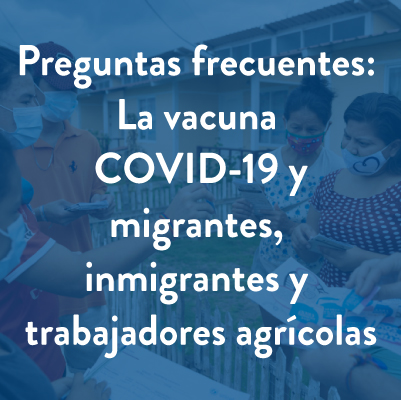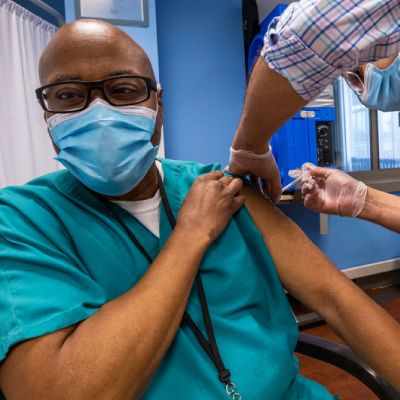- Who We Are
- Clinician Employment
- Publications
- Witness to Witness (W2W)
- El Premio Kugel & Zuroweste a la Justicia en la Salud
- Your Voice Matters: Photovoice Project
Fri, 03/22/2019 | by Claire Hutkins Seda


[Editor’s Note: Congratulations to our Health Network team and our MCN co-writers for the publication of a Health Network case study in the New England Journal of Medicine! Read ahead for more on the case and its implications.]
A 39-year-old pregnant farmworker faces numerous health risks. Engaged in heavy physical labor and exposed to pesticides and heat, she may also face poor living conditions, contaminated water, or limited access to healthy foods. Her advanced maternal age further increases her risk for pregnancy complications.
But her mobility is the factor that finally breaks her care, as our health systems are not built for patients who move around. Like many migrant farmworkers, she plans to move every three weeks as long as she can during her pregnancy. How can a clinician help her maintain care throughout her pregnancy, to help her avoid the many possible complications, despite her frequent moves?
This week’s New England Journal of Medicine features her story in this Health Network case study, co-written by MCN’s Laszlo Madaras, MD, MPH, Ed Zuroweste, MD, Deliana Garcia, MS, and Claire Hutkins Seda, along with Scott Stonington, MD, PhD, a primary care physician and Assistant Professor of Anthropology at the University of Michigan, Ann Arbor.
The case demonstrates the concept of “social distance,” wherein health systems, which are built around a prototypical patient, cannot function when a patient is outside of that prototype. In the case of Ms. G., a pregnant migrant farmworker, her mobility could not be accommodated within a system that assumes that patients live and work near a medical home.
Health Network, MCN’s virtual case management system, assisted the patient in finding prenatal care in each new region, every time she moved, and followed her care until she was done migrating, which reduced the effects of social distance around mobility, and allowed for positive outcome: a healthy baby boy.
The article is accompanied by a podcast interview with Dr. Madaras, MCN’s Chief Medical Officer, on mobility, barriers to care, and Health Network. The case study is this month’s installment of the New England Journal of Medicine’s “Case Studies in Social Medicine” series.
“The New England Journal of Medicine has chosen to highlight critical issues in social medicine and ways that we, as clinicians, can practically address the issues in our exam rooms,” explained Dr. Madaras. He stressed the hard work of our Health Network Associates, including that of Alma Colmenero, the Health Network Associate who was pregnant herself while managing the pregnant farmworker in the case study. “Essential to the success of Health Network is a dedicated multilingual staff of several Health Network Associates who regularly communicate with mobile patients, sometime requiring very early morning or late evening international calls that correspond to the patients’ appropriate time zone.”
“Health Network is an important and practical solution for clinicians to help their patients access care despite their mobility,” Dr. Madaras continued.
“We’re proud of our work -- and we hope that clinicians continue to take advantage of this critical bridge for migrant patients.”
Learn more about Health Network, including how to enroll patients.
Access all the perspective articles in the Case Studies in Social Medicine series.
Schedule a training for your health center’s clinicians on how to use Health Network by emailing Theressa Lyons-Clampitt at tlyons@migrantclinician.org.
Like what you see? Amplify our collective voice with a contribution.
Got some good news to share? Contact us on our social media pages above.
Return to the main blog page or sign up for blog updates here.







